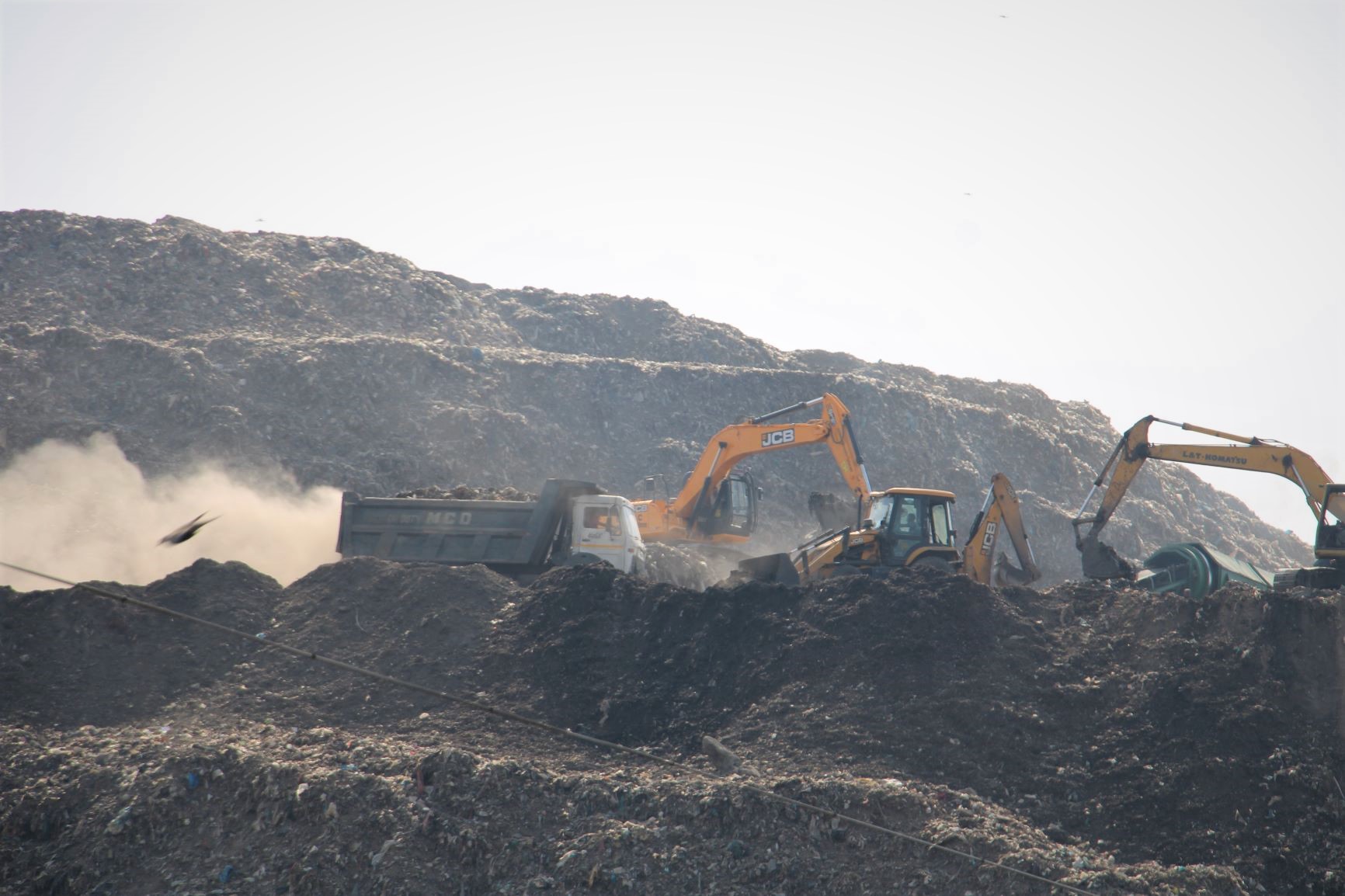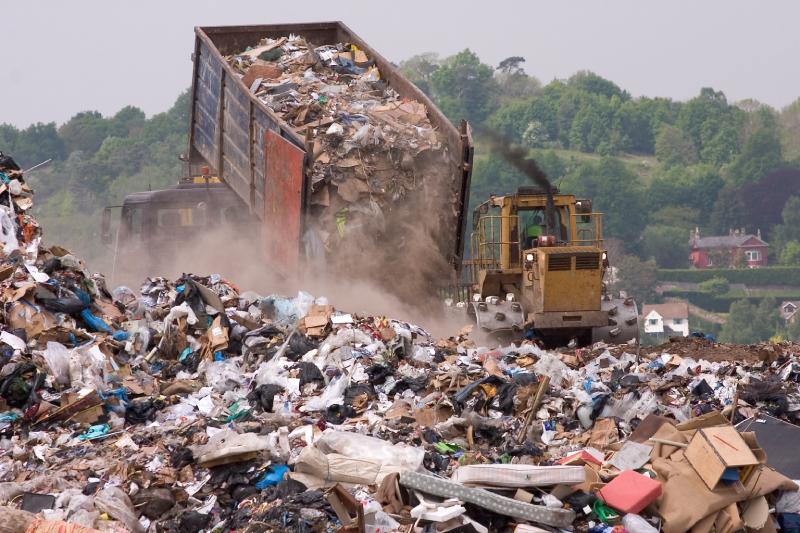World Environment Day: Business of lip service to environment

A study says 8.3 billion tonnes of plastic has been produced in the world since plastic was invented (MIG photos/ Varsha Singh)
As you observe the World Environment Day, consider this. Each year, about 1.5 billion tyres are burnt around the world, leading to severe pollution. Nearly 91 pc of the 313 million tonnes of plastic produced in 2019 ended up in landfills or the ocean. In the same year, 53.6 million tonnes of electric and electronic waste was generated around the world.
And then consider this. While the entire world seems to be excited about the ongoing deployment of 5G wireless technology that promises to be another revolution in data speeds and seamless connectivity as mobile telephony companies and smartphone manufacturers salivate over the hundreds of millions of consumers who would be switching to 5G this year. For the global smartphone makers, introduction of 5G presents perhaps the best opportunity they have had in over half a decade as many more people will switch to 5G systems, resulting in booming sales of devices. This would almost certainly push their sales to record highs and profits even higher.
Economic revival post-pandemic another threat to environment
According to estimates, in 2021, a total of 1536 million smartphones would be sold in the world, a jump of over 160 million over the sales in 2020. Similarly, the sale of other electronic devices is also likely to register a sharp hike after a rare decline in 2020 due to the Covid-19 pandemic. Few would dare to hazard a bet on product whose sales would not rise sharply this year as the global economy recovers from the pandemic paralysis and consumers go on an unprecedented shopping spree. This is also the bet that most companies around the world are happy to take.
While all this brings good news to the manufacturers and their shareholders, booming sales of electronic devices, tyres, plastics or for that matter most of the products sold around the world, would have catastrophic consequences for planet Earth, pushing it deeper and irretrievably into a climate crisis.
Over the past few decades, far too many products have been made, used and thrown to land up in landfills or in the water bodies. A study says 8.3 billion tonnes of plastic has been produced in the world since plastic was invented. Of this, 6.3 billion tonnes has never been recycled. Despite tall claims by companies, as much as 91 pc of plastic produced even today is simply dumped and not recycled or reused as manufacturers claim. Most of the plastic ends up in the oceans, where already there are millions of tonnes of plastic waste severely impacting marine life.
Scientists warn that if current trends continue, there would be 12 billion tonnes of plastic in landfills around the world. Similarly, with about 10 million tonnes of plastic ending up in the oceans every year, by 2050 there would be more plastic waste than fish in the oceans, by weight, than fish.
Shorter product lifecycles

Electronic goods and their packaging is a large contributor to pollution (Photo: GLEC)
The problem with plastics, electronic and electrical devices as well as tyres is their extremely short life in consumers’ hands or very short lifecycle. While products like steel or cement, which though very polluting, have a lifecycle of say almost a century, especially when used in construction, half of all plastic produced in the world turns to trash in a few months and a significant chunk of this in days from manufacture.
Same is true of the origin of e-waste. Indeed, here, as in some other sectors of consumer goods, companies have shortened the useful life of a product in order to either keep the costs low so that they can sell to more customers every year or keep bringing ‘upgrades’ and newer versions every year or so in order to attract their existing customers to get rid of their products and go in for the newest version.
This is especially true of the electronic devices as well as automobiles and even garments as companies flood the markets with new products each year, hoping to sell more. Think of Apple or Samsung bringing in their smartphones every year or a Volkswagen or Toyota launching a new fender or with other minor tweaks, simply to keep their sales going and shareholders happy.
Packaging the pollution
In food products, especially fast food and snacks and savouries, as well as personal and homecare products where in order to reduce the cost per unit, companies have simply begun to sell smaller servings. Biscuit packs, wafers or chocolates and even detergent powders and soaps, especially in developing countries, are being sold in ever smaller packages in order to reach out to the poor. While the consumer gets her product, the company gets its sale and it packaging, often as harmful to the environment as the product ends up in the landfill or ocean beds.
Packaging is even more outrageously polluting in the case of electronic devices where it almost outweighs the product. Any recent buyer of a smartphone or a laptop can vouch for this. Of course, the moment the product arrives, the packaging ends up in trash bin, beginning its familiar journey of poisoning the planet.
All promises by businesses of adopting sustainability or going green are nothing but a lip service and it is time that the governments cracked the whip and made companies responsible for their products not just up to the point that it is used by the consumer, but crucially for what happens to it after its useful life is over.
The European Union imposes a minuscule recycling tax, even for products that cost several hundred or thousands of euros. But that does not even cover the cost of a garbage sack in which the consumer would throw the packaging the moment the product arrives.
But it points to the right direction. Germany has gone further and introduced incentives for consumers who bring the product container, say a glass bottle of Coke, back to the store and buy a new one. These are basically practices that were widespread until about 1980s or 1990s when plastic became the preferred means of packaging milk or carbonated waters, simply because it was easier and more cost effective for the companies that have fattened their profits to incredible, almost inhuman levels. The consumers have been happy due to ease of carrying it everywhere.
But someone had to pay the price of this ease. So far it is Nature that has carried the burden of these billions of dollars. And finally it is throwing it all back at us. It is time to change the business plan of this Earth envisaged in corporate boardrooms and bring the burden back where it belongs. At the manufacturer’s doorstep. That may be the only way to hope in face of a certain apocalypse that stares us in the face and the doomsday gets nearer by the day.









